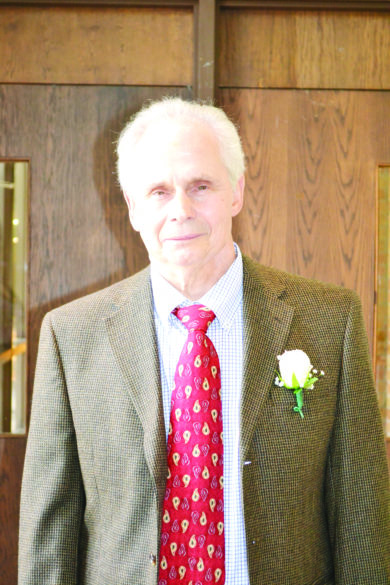Guest column
By James Tomek, Ph.D.
In honor of our national memorial of Martin Luther King, Bishop Joseph Kopacz had our diocese sponsor a workshop “The Fight Against Racism: the Past, Present, and Future Hope of the Church,” led by Bishop Shelton Fabre, an expert on cultural diversity and Catholic African American Relations. He approached our confrontation against the sin of racism with less emphasis on civil rights legislation, focusing more on converting our hearts to do the right thing.

He started with a review of three earlier Pastoral Letters by the Bishops Council (USCCB) that condemned racism but noting that they had little effect in inspiring homilies about racial inequality and human dignity. Catholics should be responding equally to the sins of racism as they do against abortion.
Bishop Fabre outlined a more recent document, “Open Wide Your Hearts: The Enduring Call to Love” (2018), of which he is a major author. Bishop Shelton then encouraged us to follow the prophet Micah’s procedure.
First, one does justice. Since we are all created in the image and likeness of God, we must root out the sin of racism that destroys human dignity, with hatred killing possibilities of communion. Laws are a start, but real conversion comes when our hearts tell us to do the right thing.
This concept clarifies for me the paradox of Immanuel Levinas’ study of the Talmud, where Jews do the law before they know it. I also understand better Paul’s meaning of putting Faith above the Law. Faith is our attitude to do justice. Micah’s next step is to love goodness – practiced by developing homilies and welcoming minorities in our communities. “Walking humbly” is the last step in Micah’s process where we try to set a good example by confronting our own racism.
Before providing resources, Bishop Fabre sets the tone by changing slightly the parable of the workers in the vineyard (Matthew 20:1-16). The workers, who had worked all day, resented the late arrivers being paid the same. The Bishop edits the complaint from “you have paid them equal to us” to “you have made them equal to us.”
Deep down, we humans like to feel superior to some groups of people (the glamor of sin that we reject in our baptismal vows) – a sin against human dignity. Again, we legislate civil rights, without converting our hearts. The session concludes with lists of resources, reminding us of other objects of racism with Asians and Latinos, along with specific subject areas, like housing, jobs, prison and the death penalty.
Finally, Bishop Fabre encourages preaching the evils of racism. We are confused like the disciples at Emmaus. We all need to hear Jesus’s Word and be properly catechized – meaning that we need to study! Racism ends in hatred, undercutting any possibility of unity. Some people react negatively against “Black Lives Matter” thinking that “All Lives Matter.” The Bishop corrects this attitude with an example. All houses matter, but the one on fire matters most. As a former lifeguard, I will add that a struggling, drowning swimmer matters first.
How can I speak against racism to my colleagues in Rosedale? If I think that I am not a racist, I am one. The way out is to confront my racism – which brings me to Palisades Amusement Park at age 14 where I worked at a food stand. The park was near the George Washington Bridge – and thus New York City. Every Sunday would bring huge crowds. Puerto Ricans would line up 10 deep, ordering hotdogs and lemonades, in a language that was foreign to me – and irritating. My colleagues and I, while not ridiculing people openly, would make fun. Bishop Fabre would say that we were affirming our superiority over these people. I am not proud of my attitude then and hope for Purgatory.
One purge came later at a conference where a Mexican colleague and I were discussing Voltaire. I told him that I thought his degree was in Spanish because he was from Cancun and then confessed that if I, an English speaker, can study French, why not he, a Spanish speaker, also switch cultures. We finished in academic unity.
PS. I am a Lay Ecclesial Minister at Sacred Heart in Rosedale and a former French and English teacher at Delta State University. I attended the workshop via Zoom. I want to add that I have heard my Sacramental Ministers and Mentors (Fathers Kent Bowlds, Thomas Mullally and Sebastian Myladiyil) speak about and act against racism and have read pertinent articles in our diocesan paper. The tense frightening times though suggest that we take a bigger stand.
(James Tomek is a retired language and literature professor at Delta State University who is currently a Lay Ecclesial Minister at Sacred Heart in Rosedale and also active in RCIA at Our Lady of Victories in Cleveland.)
